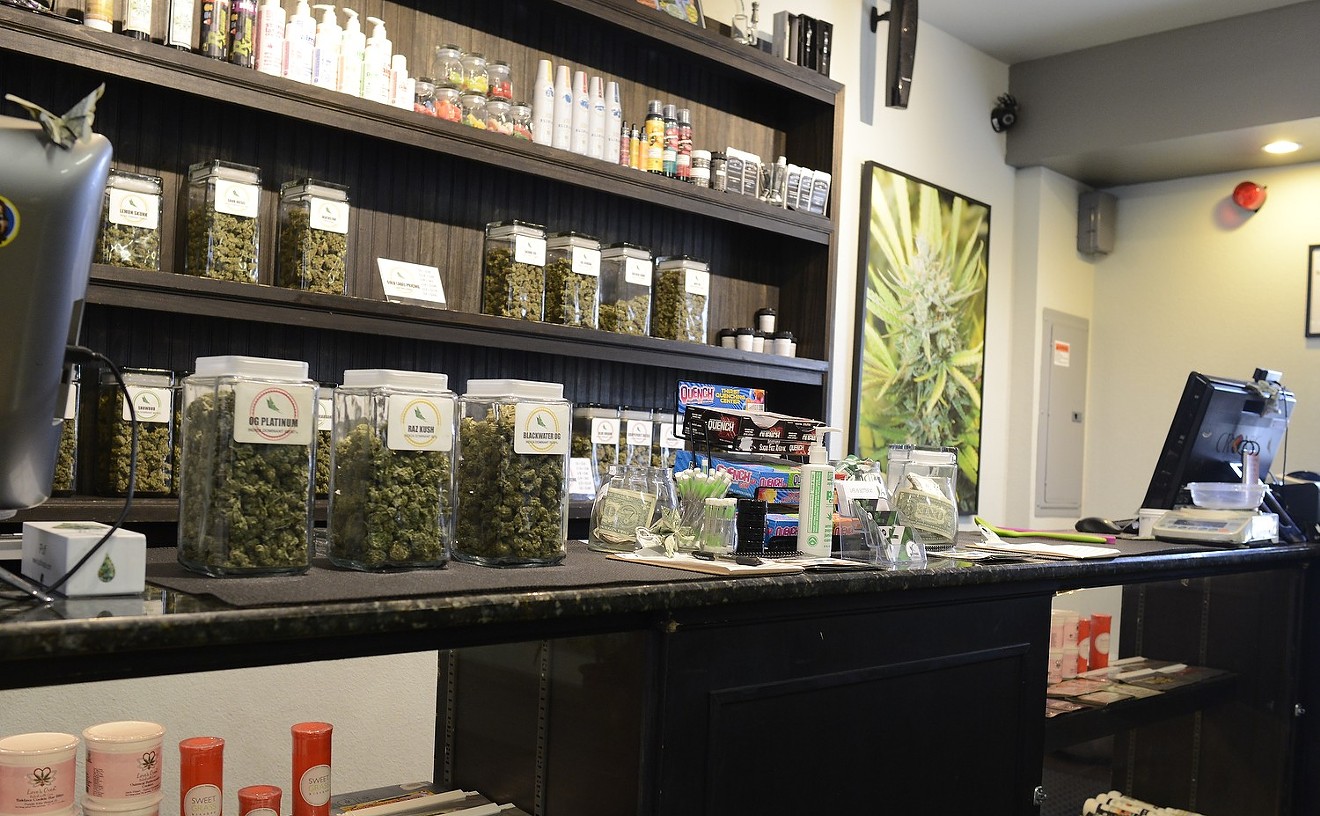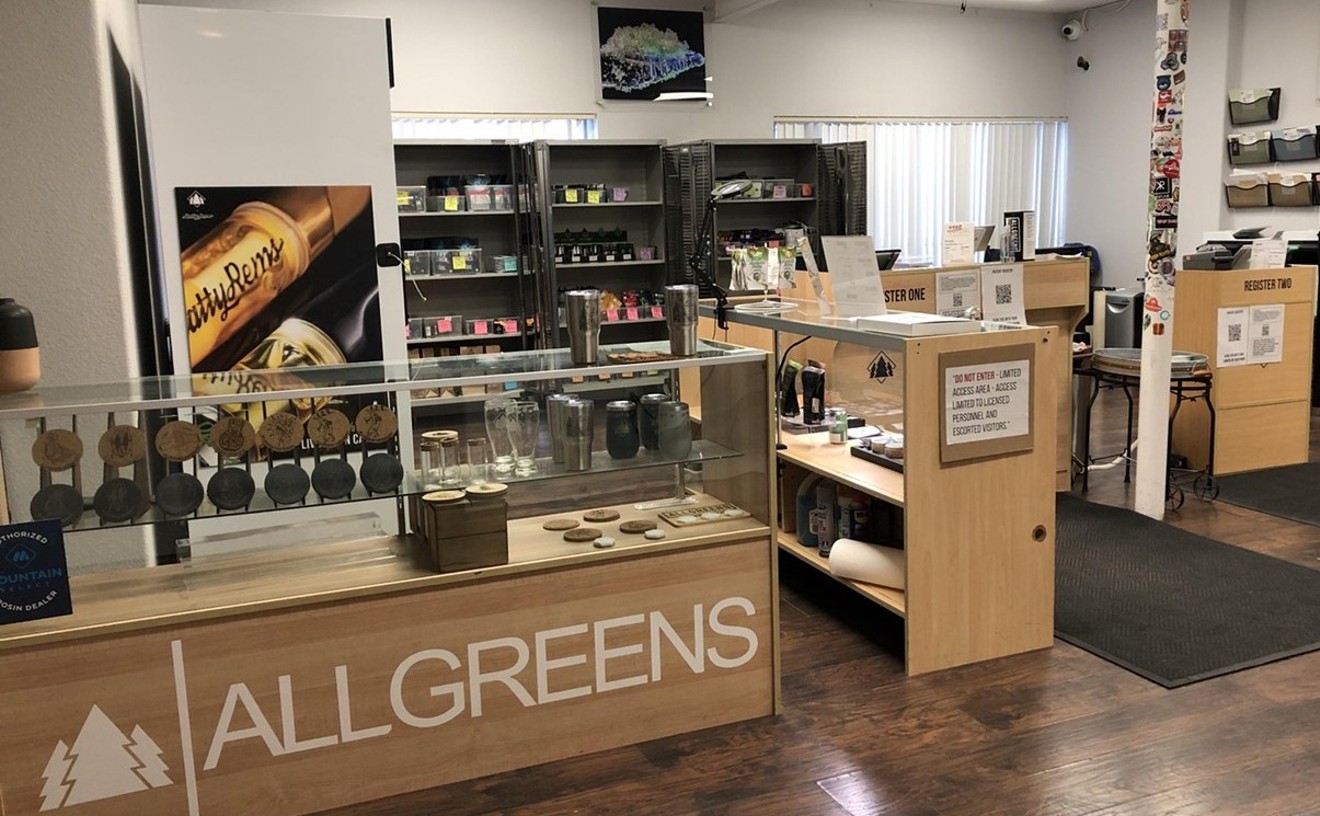Colorado Attorney General Phil Weiser has joined a coalition of fellow AGs in urging Congress to legalize banking for the marijuana industry. Weiser's is the first signature on a May 8 letter sent to leaders in both the U.S. House and Senate from the AGs of 38 states and territories, all pleading their case that financial services should be provided to the legal marijuana businesses in their respective jurisdictions.
Although the majority of this country's states have legalized some form of medical marijuana, most banks and financial institutions won't serve marijuana companies (as well as many of the businesses that work with them), out of fear of being saddled with federal trafficking charges because cannabis is still a Schedule 1 substance. As a result, the marijuana industry is largely cash-only, despite legal pot collecting over $8 billion nationwide in 2017 and predicted to reach $25 billion in sales by 2025.
Colorado Representative Ed Perlmutter's SAFE Banking Act may be the industry's best chance at financial protection so far, as it proposes explicit federal protections for financial institutions that work with marijuana businesses, as well as ancillary enterprises such as real estate and accounting firms and other service vendors. The bill had a successful committee vote in the House in March (it's currently awaiting another hearing before the Subcommittee on Crime, Terrorism, and Homeland Security) and has been introduced in the Senate, too — but Weiser and some of his peers want to see that legislation move faster.
"This issue is of broad relevance: for example, 33 states and several U.S. territories have legalized the medical use of marijuana," the letter reads. "However, because the federal government classifies marijuana as an illegal substance, banks providing services to state-licensed cannabis businesses and even to other companies which sell services and products to those businesses could find themselves subject to criminal and civil liability under the federal Controlled Substances Act and certain federal banking statutes. This risk has significantly inhibited the ability of financial institutions to provide services to these businesses and companies."
Although Perlmutter has been pushing some form of his SAFE Act since 2013, the year after Colorado legalized recreational marijuana, other elected officials in Colorado have started asking the feds to enact laws protecting banks that serve marijuana companies. Former Colorado AG Cynthia Coffman did so in 2018, as did Mayor Michael Hancock in February; Weiser, who took office on January 8, wants to follow up on Coffman's request.
“I am proud that Colorado is at the forefront in calling on our federal government to provide legitimate marijuana businesses with access to the banking system," he says in a statement. "For too long, the status quo has pushed legitimate businesses outside the banking system and into cash-dependent models, creating a lucrative target for violent and white-collar crime. This is a public safety issue. We are especially heartened that Colorado’s view is now the official policy of the National Associations of Attorneys General, an unprecedented milestone.
"The message from the states’ top law enforcement offices is loud, clear, and bipartisan: Congress must act to allow legitimate marijuana businesses to access banking services.”
Read the full letter from Weiser and 37 other AGs below:
[
{
"name": "Air - MediumRectangle - Inline Content - Mobile Display Size",
"component": "12017618",
"insertPoint": "2",
"requiredCountToDisplay": "2"
},{
"name": "Editor Picks",
"component": "17242653",
"insertPoint": "4",
"requiredCountToDisplay": "1"
},{
"name": "Inline Links",
"component": "18838239",
"insertPoint": "8th",
"startingPoint": 8,
"requiredCountToDisplay": "7",
"maxInsertions": 25
},{
"name": "Air - MediumRectangle - Combo - Inline Content",
"component": "17261320",
"insertPoint": "8th",
"startingPoint": 8,
"requiredCountToDisplay": "7",
"maxInsertions": 25
},{
"name": "Inline Links",
"component": "18838239",
"insertPoint": "8th",
"startingPoint": 12,
"requiredCountToDisplay": "11",
"maxInsertions": 25
},{
"name": "Air - Leaderboard Tower - Combo - Inline Content",
"component": "17261321",
"insertPoint": "8th",
"startingPoint": 12,
"requiredCountToDisplay": "11",
"maxInsertions": 25
}
]












